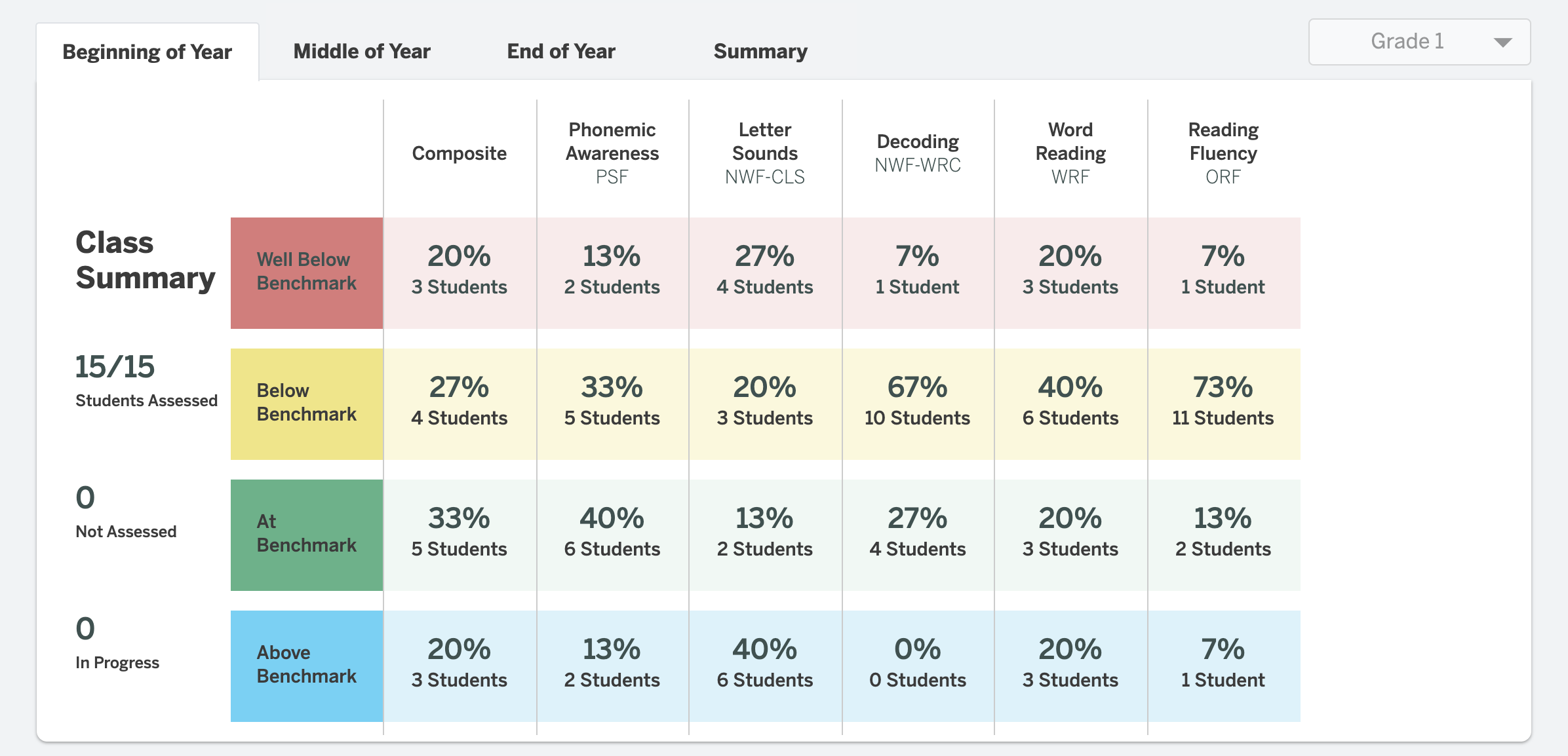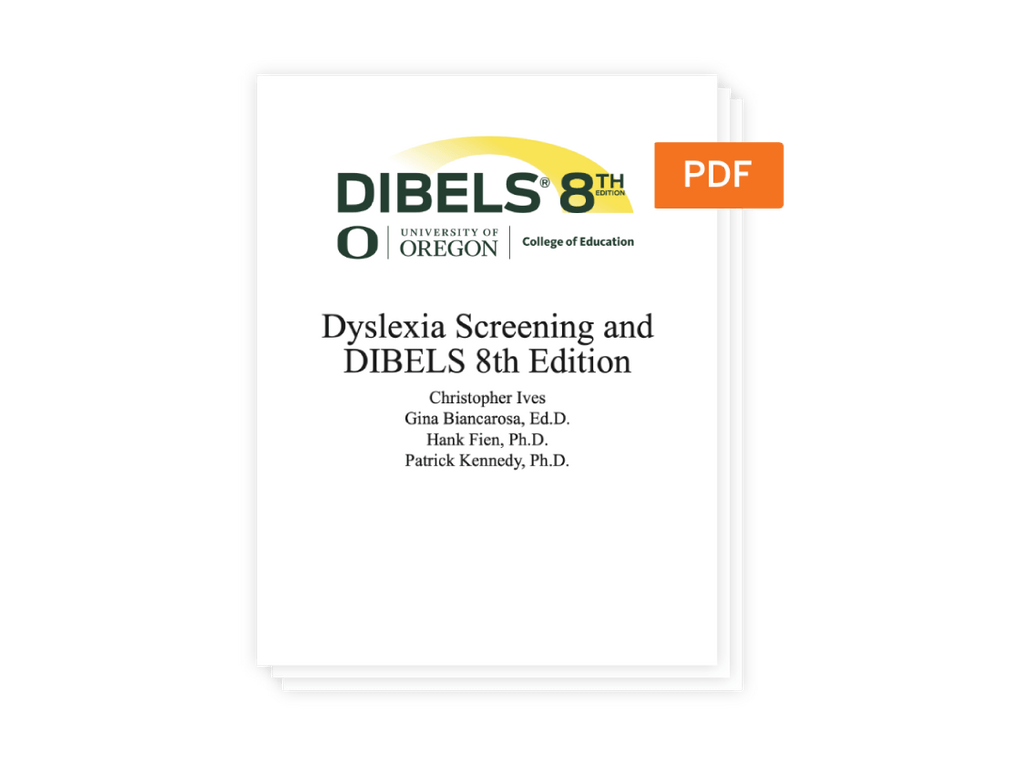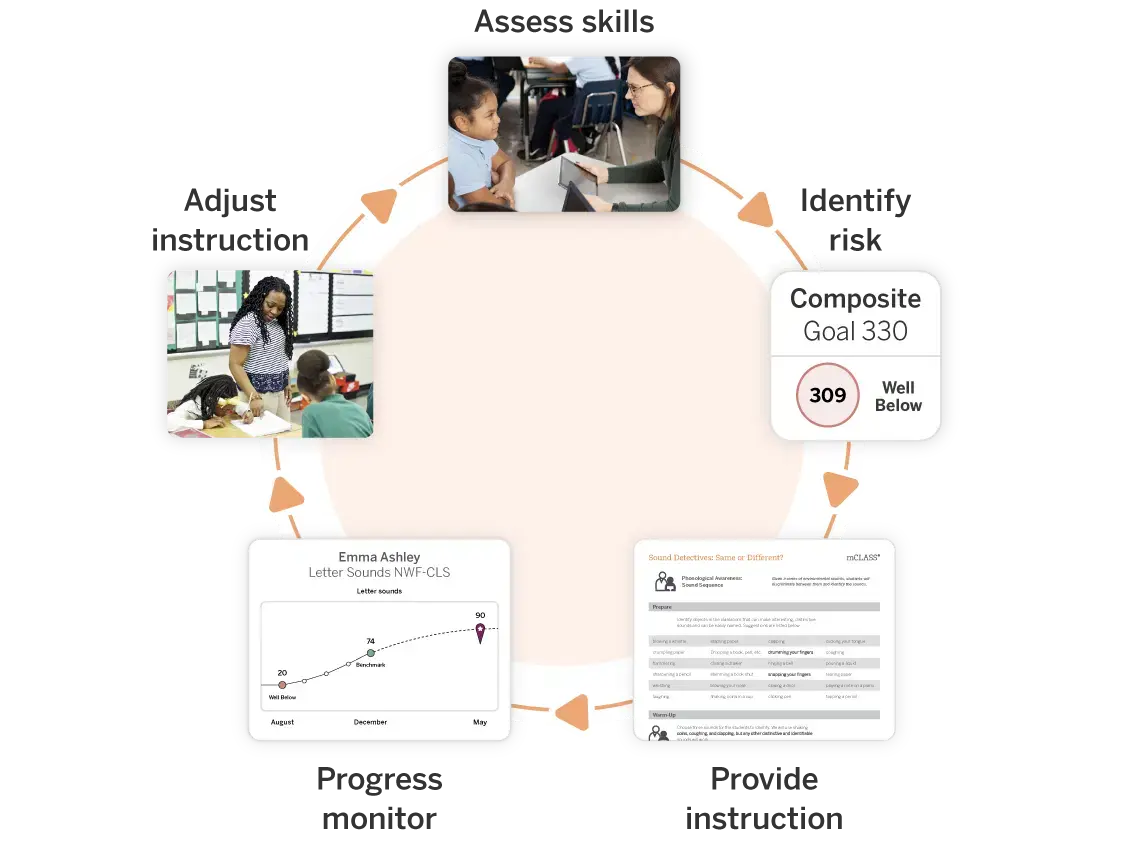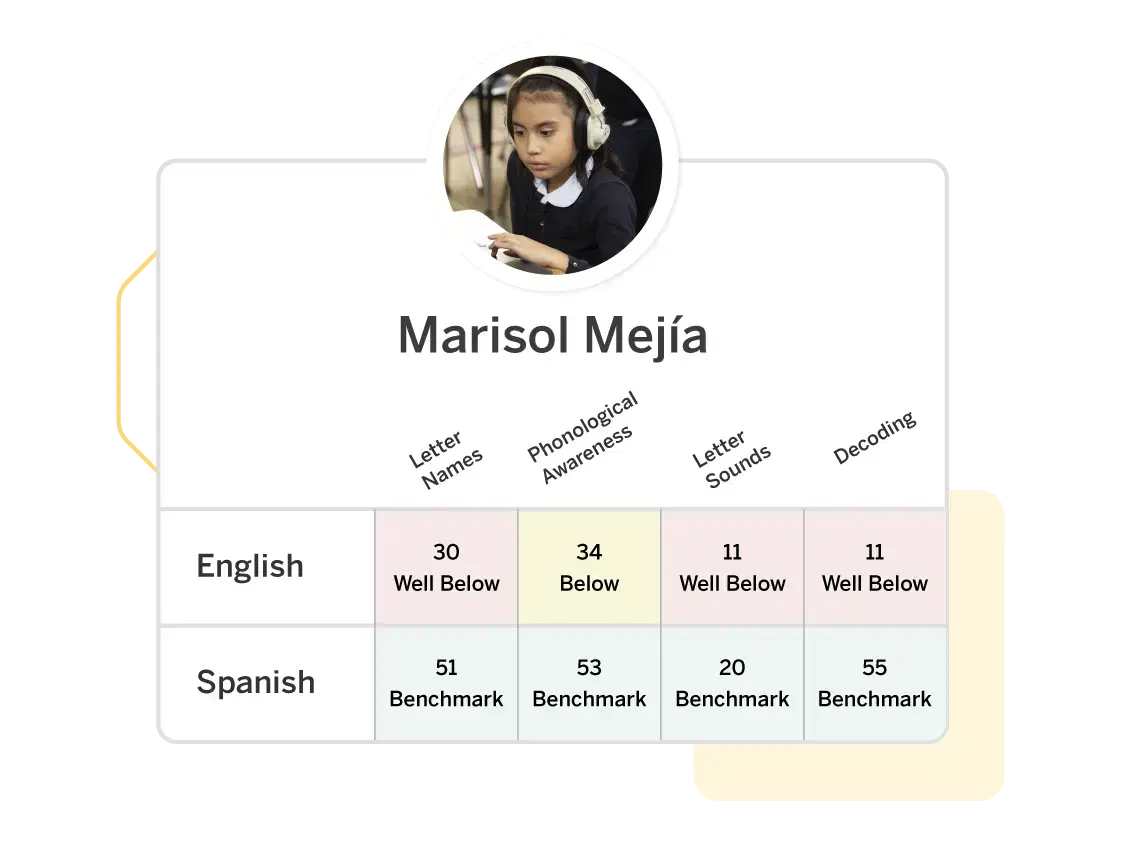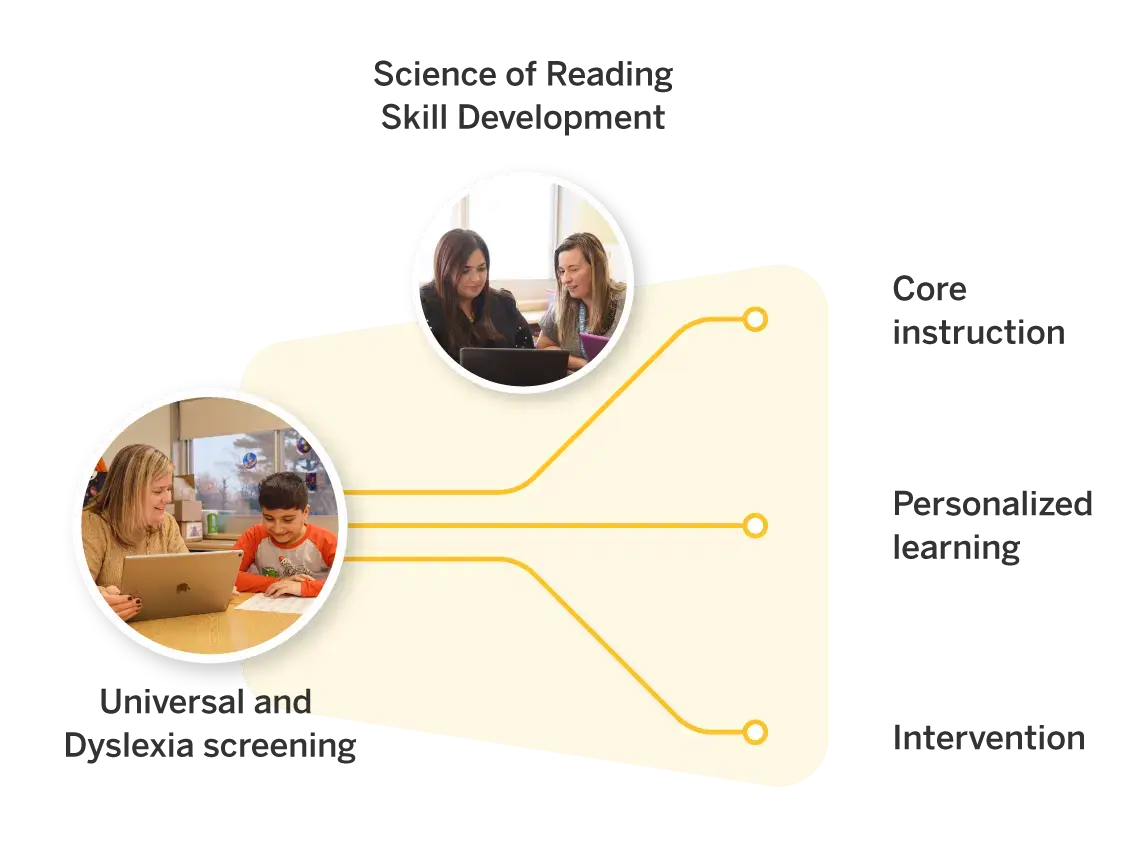| Letter Naming and RAN |
Letter Naming Fluency (LNF) |
Fluidez en nombrar letras (FNL) |
Grades K–1: Naming letters in print. 1 minute, 1:1 administration. |
Phonological Awareness
(Segmentation) |
Phonemic Segmentation Fluency (PSF) |
Fluidez en la segmentación de sílabas (FSF) & Fluidez en la segmentación de fonemas (FSF) |
Grades K–1: Hearing and using sounds or syllables in spoken words. 1 minute, 1:1 administration. |
| Phonological Awareness (Elision) |
— |
¿Qué queda? (QQ) |
Grades K–2: Produce the part of a word that remains after deleting a syllable or phoneme. 1 minute, 1:1 administration.
|
| Letter-Sound Knowledge |
Nonsense Word Fluency Correct Letter Sounds (NWF-CLS) |
Fluidez en los sonidos de letras (FSL) |
English: Grades K–3: Identify letter-sound correspondences in the context of pseudo-words.
Spanish: Grades K–1: Identify letter-sounds in isolation. 1 minute, 1:1 administration.
|
| Letter-Sound Knowledge (Receptive) |
— |
Fluidez en los sonidos de las letras K-Inicio (FSL K-Inicio) |
Grade K: Identify (point to) which letter makes a certain sound. Untimed, 1:1 administration. |
| Decoding |
Nonsense Word Fluency Words Recoded Correctly (NWF-WRC) |
Fluidez en los sonidos de las sílabas (LSS) |
English: Grades K–3: Decode orthographically regular pseudo-words.
Spanish: Grades K–1: Decode orthographically regular syllables 1 minute, 1:1 administration.
|
| Word Reading |
Word-Reading Fluency (WRF) |
Fluidez en la lectura de palabras (FEP) |
Grades K–3: Reading common words easily, quickly and correctly.1 minute, 1:1 administration. |
| Fluency |
Oral Reading Fluency (ORF) |
Fluidez en la lectura oral (FLO) |
Grades 1–6: Reading connected text with accuracy and automaticity. 1 minute, 1:1 administration. |
| Reading Comprehension |
Maze |
¿Cuál palabra? (CP) |
Grades 2–6: Understanding meaning from texts. 3 minutes, group administration. |
| Vocabulary |
Vocabulary |
Vocabulario |
Grades K–3: Knowledge of grade-specific words. 15 minutes, group administration. |
| Encoding |
Spelling |
Ortografía |
Grades K–3: Arranging letters correctly to spell words with grade-appropriate features.
15 minutes, group administration. |
| RAN (Numbers) |
Rapid Automatized Naming |
— |
Grades K–3: Correctly and quickly naming visual symbols, such as numbers. 3-4 minutes, 1:1 administration. |
| Language Comprehension |
Oral Language |
Lenguaje oral |
Grades K–2: Demonstrate the ability to use words and phrases acquired through conversations, reading and being read to, and responding to texts. 5 minutes, 1:1 administration. |
